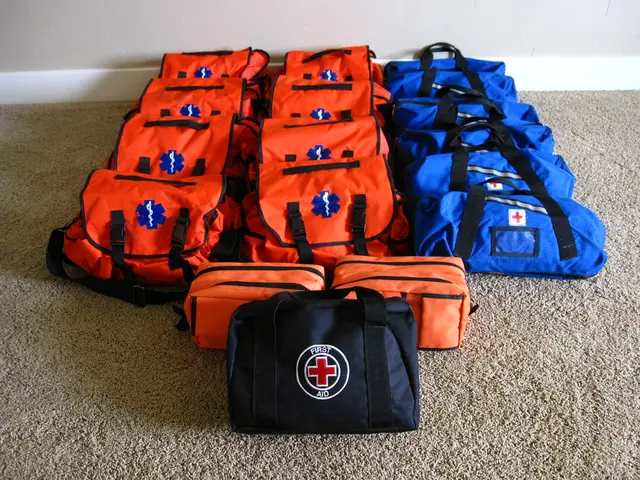Question Regarding Antihistamine Safety During Breastfeeding
=========================================================================
Breastfeeding mothers who suffer from allergies may wonder about the safety of using antihistamines to manage their symptoms. This article provides a guide to the use of antihistamines during breastfeeding, focusing on the safest options.
Allergies can cause a range of symptoms, including runny eyes and nose, itching around the mouth, and hives. Antihistamines are often used to treat these symptoms by blocking the effect of histamine or reducing its amount, leading to relief from these symptoms.
Antihistamines can be divided into two main categories: First Generation and Second Generation. First Generation antihistamines, such as chlorpheniramine, are more potent, cross the blood-brain barrier, and can cause drowsiness. In contrast, Second Generation antihistamines, like loratadine and cetirizine, do not cross the blood-brain barrier and have a low probability of causing drowsiness.
Many antihistamines are classified as compatible or probably compatible with breastfeeding, making them generally safe, especially certain Second Generation ones like loratadine and cetirizine. Cetirizine, for example, is considered relatively safe but should only be used under a doctor's advice during breastfeeding.
On the other hand, First Generation antihistamines may require timing adjustments to minimize infant exposure, and some, like cyproheptadine, are possibly hazardous due to effects on lactation. Hydroxyzine is advised to be avoided while breastfeeding due to safety concerns noted on the FDA label and lack of established safety data.
Clinical experts emphasize that the amount of most medications, including many antihistamines, that pass into breast milk is very low, making many of them safe to use when necessary. However, it is essential to consult a healthcare provider to weigh benefits and risks before using any medication during lactation.
In summary, loratadine and cetirizine are usually preferred and considered safe with medical guidance, while hydroxyzine and some First Generation antihistamines with sedative or anticholinergic effects should be avoided or used cautiously during breastfeeding.
In addition to antihistamines, there are other natural remedies that can aid in controlling allergies and inflammation. For example, flavonoids found in foods like onions, broccoli, apples, garlic, tea, legumes, parsley, wine, and Ginkgo, a Chinese herb, can be beneficial. Omega-3 Fatty Acids, found in canola oil, walnuts, flaxseed oil, grass-fed meat, and cold-water fish, have anti-inflammatory properties and are good for fighting off allergies. Stinging nettle is another natural and safe antihistamine for breastfeeding mothers.
It is important to note that the consumption of green tea, oats, and lemon water during breastfeeding are topics for separate discussions. Nasal sprays containing a decongestant or antihistamine like azelastine are considered safe while breastfeeding.
Jewelweed, a plant containing corticosteroids, is useful for dealing with contact dermatitis, bee stings, and other allergic reactions. However, its safety during breastfeeding has not been extensively studied, and it is essential to consult a healthcare provider before use.
There is concern among breastfeeding mothers about the transfer of medication to their babies through breast milk. It is crucial to discuss any medication use with a healthcare provider to ensure the safety of both mother and baby.
[1] British Society for Allergy and Clinical Immunology. (2018). Antihistamines in Pregnancy and Lactation. Retrieved from https://www.bsaci.org/wp-content/uploads/2018/11/Antihistamines-in-Pregnancy-and-Lactation.pdf [2] American Academy of Pediatrics. (2018). Drugs and Human Lactation. Retrieved from https://pediatrics.aappublications.org/content/141/4/e20172938 [3] Food and Drug Administration. (2021). Hydroxyzine Hydrochloride. Retrieved from https://www.accessdata.fda.gov/drugsatfda_docs/label/2021/021194s027lbl.pdf [4] National Institutes of Health. (2021). Antihistamines. Retrieved from https://medlineplus.gov/druginfo/meds/a682165.html [5] Mayo Clinic. (2021). Antihistamines for Allergies: Are They Safe During Pregnancy and Breastfeeding? Retrieved from https://www.mayoclinic.org/healthy-lifestyle/pregnancy-week-by-week/expert-answers/antihistamines-for-allergies-are-they-safe-during-pregnancy-and-breastfeeding/faq-20068473








